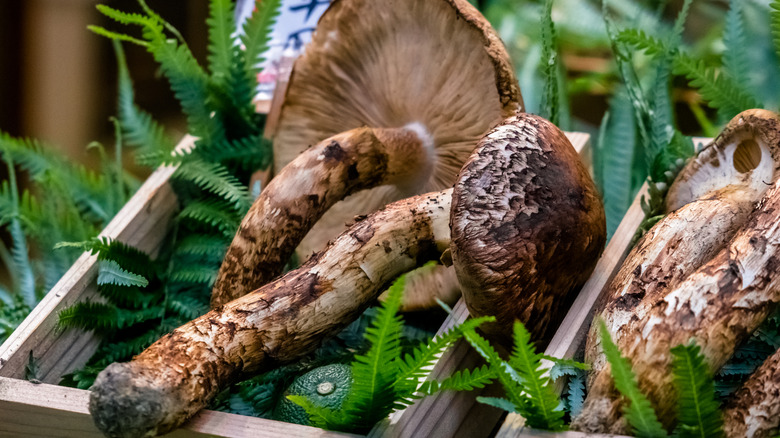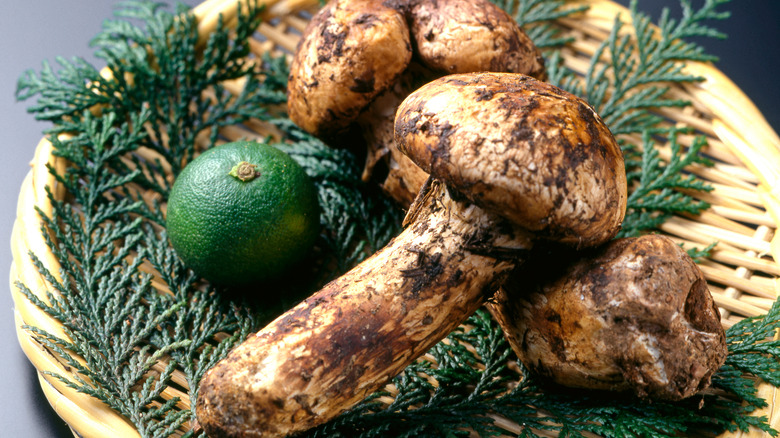The Reason Matsutake Mushrooms Are So Expensive
Matsutake mushrooms grow around the world (via Mushroom Appreciation), but the ones from Japan have a special significance. They're among the most expensive ingredients in the world. Fine Dining Lovers notes that this particular variety of mushroom has both culinary and cultural importance in Japan. It's a prime ingredient in certain one-pot and steamed-rice dishes. Also, over the centuries, matsutakes have been given as gifts by Japan's imperial family and members of the aristocracy. Businesses still add matsutake to gift baskets for clients today, per Fine Dining Lovers.
The matsutake that grow in Japan are nearly identical to those foraged in the U.S., primarily in California and the Pacific Northwest. The two types have different Latin names, according to Mushroom Appreciation, but it's unclear whether they're different species. When the season is particularly abundant in the Pacific Northwest, you might find bins of matsutakes selling at local farmers markets for $8 to $14 a pound, per the Seattle PI. In Japan, where the mushroom's habitat is dwindling, matsutakes can fetch $1,000 a pound, making the Japanese variety the most expensive mushroom in the world, according to Fine Dining Lovers.
The matsutake mushroom's habitat is threatened in Japan
Cultural or culinary significance alone don't explain why the matsutake mushroom is so expensive. The red pine trees that provide habitat for the mushrooms in Japan are being killed off by an invasive worm called the pinewood nematode, according to Fine Dining Lovers. Currently, less than 1,000 tons of matsutake are harvested in Japan each year. As Japan's population has grown increasingly wealthy and the mushroom supply has shrunk, the price has skyrocketed (via Expert World Travel).
Imported matsutake make up for the homegrown shortage in Japan. Ninety percent of the matsutake sold in Japan are imported, and they don't cost nearly as much as the local product. Expert World Travel reports finding Chinese matsutake for sale in a Japanese market at the price of two for $13. The local matsutake are believed to have a better texture because they're fresher. Also, Japan requires imported produce to be washed, and mushroom lovers in that country believe this reduces the matsutake's flavor and aroma.
Despite the high demand for matsutake, the mushroom's flavor isn't for everyone. While some connoisseurs say the mushroom is "spicy" and "intense," others who have tried matsutake might call them "foul" (via Mushroom Appreciation). But if your curiosity has been piqued, then know that come the fall season, you should be able to find some matsutake at a reasonable price — unless you simply must try the mushrooms grown in Japan.

